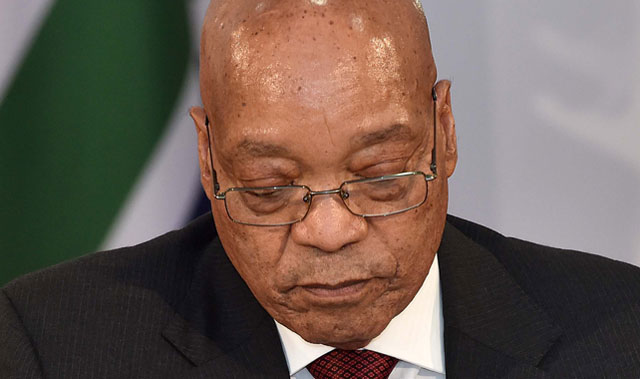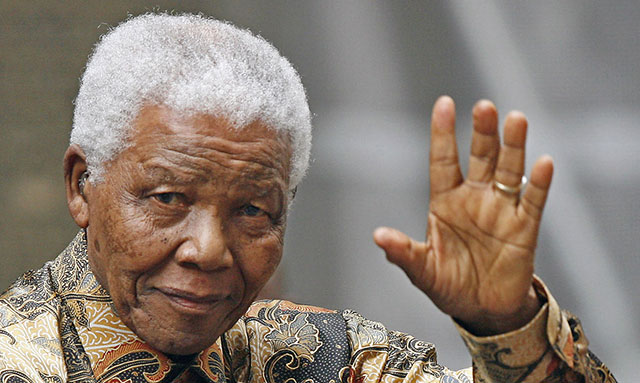
South Africa’s cabinet has become dysfunctional. This highest executive body charged with managing the state’s daily affairs has 35 members.
The cabinet is responsible for, among other things, “developing and implementing national policy [and] coordinating the functions of state departments and administration”.
But judging from recent events it is failing dismally at its task. There is mounting evidence that cabinet’s co-ordination and decision-making capacity has collapsed.
It hasn’t always been this way. Recent history reveals just how important coordinated cabinet decision making can be. In 1994, President Nelson Mandela created a “power-sharing” cabinet. It was made up of ministers from the ANC as well as the party’s erstwhile enemies — the National Party and Inkatha Freedom Party. Mandela forged a powerful and effective decision-making body.
A functioning, stable cabinet is an important ingredient for building prosperity. This is particularly true in a developing democracy like South Africa. The executive cabinet is uniquely empowered to improve the quality of ordinary people’s lives.
A strong cabinet provides the direction and political impetus for schools to be run effectively, houses to be built and corruption to be minimised. And, as illustrated by Kenya, it can help restore order in the midst of instability.
But a disjointed cabinet beset by infighting, as infamously seen in countries like Nepal, undermines the state’s ability to effectively implement development policies.
The recent statement by mineral resources minister Mosebenzi Zwane provides the most glaring evidence of a meltdown in the executive. Zwane claimed that cabinet had resolved to establish a judicial inquiry into the country’s banking sector.
This came after South Africa’s four largest banks cut ties with companies linked to the controversial Gupta family. The family is at the centre of state capture allegations.
Zwane was immediately contradicted by the presidency. It released a statement which said Zwane “does not speak on behalf of cabinet and the contents of his statement do not reflect the position or views of cabinet”.
A defiant Zwane, who has previously been linked to the Guptas, refused to answer questions about the matter in parliament.
At the same sitting, his cabinet colleague and the finance minister, Pravin Gordhan, publicly distanced himself from the call for a judicial inquiry. Gordhan asserted that South Africa already had a strong financial regulatory framework in place.
This episode inflicted further damage on dwindling investor confidence in the country.
But the most concerning aspect of Zwane’s conduct is the fact that it was not an isolated incident.

Discord within cabinet was also evident in December last year when Zuma ill-fatedly replaced his finance minister, Nhlanhla Nene, with Des van Rooyen.
The appointment sparked turmoil in the currency markets and Van Rooyen was moved to a different cabinet portfolio after just four days. He subsequently launched a public attack on his successor, Gordhan.
There are other recent examples of a lack of cohesion within cabinet. These include the revelation that water affairs minister Nomvula Mokonyane has defied the national treasury by resolving to merge the country’s two most powerful water boards.
The scale of the infighting and conflicting messages suggest that the Zuma cabinet has undermined its ability to manage the affairs of state. It evidently lacks coherent, deliberate and evidence-based policymaking procedures. It is quite simply the most paralysed cabinet the country has had since democratisation in 1994.
Thanks to Mandela’s effective leadership, in addition to the tireless work of committed people like cabinet secretary Jakes Gerwel, a group of former adversaries were able to overcome their differences for the sake of the public interest.
Despite challenges, Mandela’s cabinet ultimately laid the foundation for a long-term democratic future through the adoption of the 1996 constitution.
Out of the ashes of apartheid, Mandela’s cabinet also played a central role in:
- Creating the conditions to restore fiscal stability;
- Drawing up new laws;
- Conducting South Africa’s first democratic local government elections; and
- Supporting the creation of key institutions such as the constitutional court and public protector.
But it would appear those days are long gone. Mandela fostered an environment of goal-orientated collaboration, dialogue and compromise. And while Thabo Mbeki’s centralisation of executive power ultimately contributed to a political backlash that cost him his job, his administration was downright coherent compared to the Zuma cabinet.
Zuma’s lack of leadership and his relentless focus on self-enrichment has created an environment of fear, factionalism and selfishness.
While Mandela’s cabinet made allies out of erstwhile adversaries, Zuma’s cabinet is making enemies out of former allies.
A functional, collaborative and goal-oriented cabinet is vital for good governance. In recent months, Zuma and many of his fellow executives have conclusively demonstrated they lack the leadership qualities needed to steer South Africa out of its economic and social crises.
With ever-darker storm clouds gathering on the horizon, the country’s captain is feasting below deck while his ministers fight over control of the ship’s wheel. If it is not steadied, the consequences will be disastrous.![]()
- Leon Schreiber is senior research specialist, Innovations for Successful Societies, Princeton University
- This article was originally published on The Conversation

